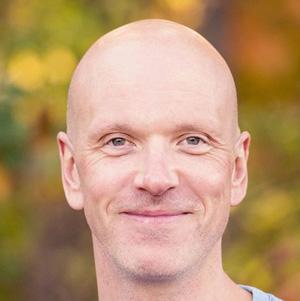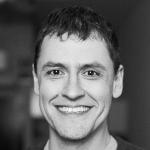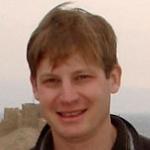Spring 2023
The ESS Speaker Series hosts presentations by scholars exploring evolutionary perspectives from an interdisciplinary framework. Our speakers span the full spectrum of the sciences and the humanities, including biology, neuroscience, psychology, anthropology, economics, history, philosophy, and literature.
While presentations are aimed at a professional audience of faculty and graduate students, interested undergraduates and members of the public are welcome too.
When:
Lectures are typically held on one Monday per month from 3:30-5:00 pm
(see below for specific dates and times)
Where:
See below for details
February 27, 2023
3:30–5:00 pm
Life Sciences Center 572 Map
Karthik Panchanathan
University of Missouri
"Shifting the Level of Selection in Science"
Criteria for recognizing and rewarding scientists typically focus on individual contributions. This creates a conflict between what is best for scientists’ careers and what is best for science. In this paper, we show how principles from the theory of multilevel selection provide a toolkit for modifying incentives to better align individual and collective interests. A core principle is the need to shift the level at which selection operates, from individuals to the groups in which individuals are embedded. This principle is used in several fields to improve collective outcomes, including animal husbandry, professional sports, and professional organizations. Shifting the level of selection has the potential to ameliorate several problems in contemporary science, including accounting for scientists’ indirect contributions, reducing individual-level competition, and promoting specialization. We discuss the difficulties associated with changing the level of selection and outline directions for future development in this domain.
March 13, 2023
3:30–5:00 pm
Life Sciences Center 572 Map
Andreas Wilke
Clarkson University
"The Adaptivity of Human Search"
Humans and other organisms must search effectively for the resources they need, whether these are physical (e.g., food or shelter) or informational (e.g., patterns in the world, or concepts stored in memory). Most human search studies have focused on brief (static) laboratory tasks, but being effective in realistic search settings requires adapting to changing environments over both short and long terms, and to changing individual abilities developmentally. In this talk, I will report on an ongoing project that investigates how children grow to understand searchable patterns as clusters and sequences.
A tendency to perceive illusory streaks or clumps in random sequences of data—the hot hand phenomenon—has been identified as a human universal tied to our evolutionary history of foraging for clumpy resources. We investigate how this misperception of randomness and ecologically relevant statistical thinking develops ontogenetically. Based on our work with adults, we developed three iPad-based decision-making tasks to assess how 3- to 10-year-old children decide that sequential events will continue in a streak or not, their understanding of randomness, and their ability to reason in spatially dependent terms. Our NSF funded project is collecting data at research sites in the United States (currently n=160) and in Germany (currently n=188). Our analyses suggest that children, indeed, hold strong expectations of clumpy resources when they search through and reason with various statistical distributions.
April 13–14, 2023
Locations, times, and events TBD
David Pizarro
Cornell University
Tamler Sommers
University of Houston
"The Very Bad Wizards Come to Mizzou"
More details coming soon!
May 1, 2023
3:30–5:00 pm
Tate Hall 102 Map
Daniel Nettle
Ecole Normal Supérieure-PSI, Newcastle University
"The Biological vs. Social Divide in Anthropology: Why we should give it up, and why it’s the hardest thing to do"
Anthropology, along with other human sciences, often finds itself polarized between approaches that are primarily ‘social’ or ‘cultural’, and those that are primarily ‘biological’ or ‘evolutionary’. These approaches, in careless talk and in practice, are seen as mutually incompatible and opposed. I will argue that the distinction should be given up: all social approaches are also biological, and biological approaches can also be social. There are not, in effect, two kinds of explanation for human life, but one kind with diverse details according to the case under consideration. Many people have made this point, going back many decades, but somehow it never quite gets a purchase. I will therefore spend the bulk of my lecture talking about why some kind of distinction between ‘biological’ and ‘social’ explanations manages to persist despite such good arguments for abandoning it. I will argue that the distinction is intuitive, based on patterns in human psychology, and therefore becomes an attractor. I will spend some time discussing what we might do to help ourselves give it up.




